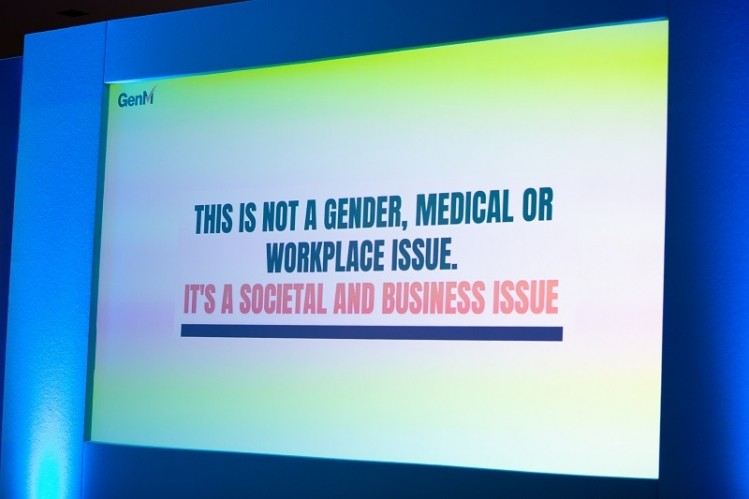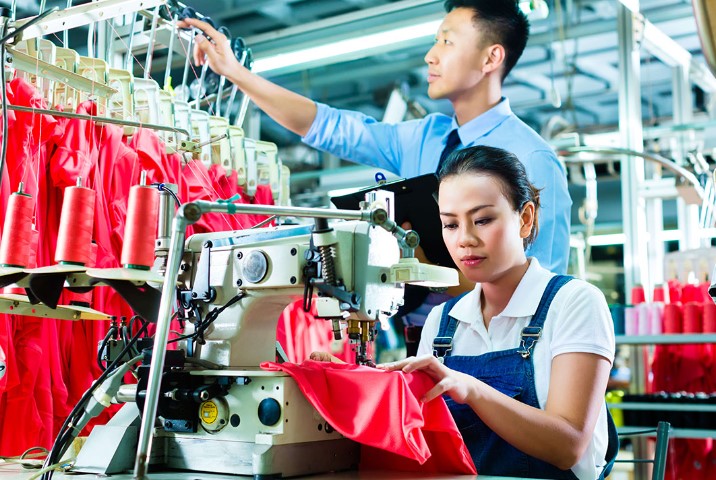Campaigner urges more NPD to embrace the menopause

There are 15.5 million menopausal women in the UK alone, revealed Heather Jackson, the co-founder of Gen M, which helps brands recognise and respond to the needs of perimenopausal and menopausal women. Many of these consumers feel ignored or misrepresented by brands, said Jackson, who urged the food industry to formulate products to improve health through the menopause. “It’s very hard to find products within stores. Where’s our promotion and our product development?” she asked. “This is an audience that is underserved, and it needs better serving.”
As many as 48 symptoms are experienced during the menopause, hugely disrupting lives. Many of these symptoms could be helped with innovation from brands. “I need you all to understand that this is an audience that is so woefully underserved and yet is so waiting for better information, better product development and better signposting,” the audience heard.
Food ‘integral’ to the menopause experience
Speaking with FoodNavigator, Jackson elaborated on why she believes big food manufacturers need to be in this space and why they need to catch up. “Menopause can impact everything from nutrition to cosmetics, and even the clothes you might wear,” she told us. “Just as much as other products, food is integral to your menopause experience. We can no longer ignore the impact that having a nutritional diet can have on your opportunity to be the best version of yourself through menopause.” Manufacturers therefore have a huge role to play. “We need them to recognise the purposeful and commercial opportunity before them,” urged Jackson.
The menopause hits at a life stage when many women are particularly busy and time-poor and it is, at best, an inconvenience, she added. “This audience is now demanding more from brands – they don’t want to have to struggle and search to find items that support their symptoms. GenM research shows that 78{2f721a9a84cd1ef3e64bf507ea0c8ab2bc235122c146c2a4cbd42268917563c5} of women would be happy to shop for products labelled as menopause-friendly, while a further 90{2f721a9a84cd1ef3e64bf507ea0c8ab2bc235122c146c2a4cbd42268917563c5} of menopausal women want brands to be more inclusive to menopause.
“We need the food industry to recognise this opportunity and step up to the plate, like we’re already seeing the beauty and wellness industry do.”
Food and nutrition play a ‘massive’ role in preparing women, she stressed. “We can’t underestimate the power of women having the right food and supplements in their diet. For me personally, food was the biggest game changer for me. Changing my diet impacted my menopause so much. Let’s remember that women my age are the generation of calorie deficit – we’ve done every fad diet under the sun. But if there was ever a time to make sure that we’re looking after ourselves with good, nutrient rich food, it’s the menopause.”
The menopause isn’t an illness to fix, it’s a life stage to be embraced and supported, noted Jackson. GenM’s research shows that 78{2f721a9a84cd1ef3e64bf507ea0c8ab2bc235122c146c2a4cbd42268917563c5} of women would buy well-signposted menopause-friendly products that relieve, support and ease their symptoms. “Nutrition is one of the most important ways to support the menopause and we need food and drink brands to step up to the challenge.”
What’s the latest science telling us about the type of ingredients and formats that can help alleviate menopausal symptoms? “My friend Karen Newby is a nutritionist with over 10 years of clinical experience,” Jackson responded. “She tells me she’s seeing a lot of conversation moving away from energy-dense foods in favour of nutrient-dense foods in order to improve health through the menopause. She says phytoestrogens found in things like ground linseed, soya, chickpeas or lentils are big as they help to reduce hot flushes, which is the most well-known menopause symptom.
Above all though, she’s seeing much more acknowledgement of the impact of a holistic lifestyle – advocating the right nutritional support alongside regular exercise, social contact, low alcohol and avoiding smoking. We can’t allow consumers to see lifestyle as separate to their menopause health. We need to look at things holistically.”
For examples of successful innovation and NPD already in this space, Jackson pointed to health foods brand Linwoods (a GenM partner) which has brought out a new range of healthy seed blends, including Menoligna, a blend of milled, sprouted flaxseed and milled chia seeds, specifically developed for women during the menopause stage of life.
Menopause: the next vegan?
Jackson compares the menopause opportunity to the vegan market. “A phrase I find that helps brands understand is ‘menopause is the new vegan’. Look how much money and effort goes into catering to the vegan market – a lifestyle choice that makes up less than 4{2f721a9a84cd1ef3e64bf507ea0c8ab2bc235122c146c2a4cbd42268917563c5} of the UK – compared to the 20{2f721a9a84cd1ef3e64bf507ea0c8ab2bc235122c146c2a4cbd42268917563c5} of the population who are in menopause right now. This audience is just as deserving of signposting to products, informative and uplifting campaigns, and an improved customer experience both in-store and online.
“I think the vegan example also makes it clear that catering for one market won’t alienate another. Meat-eating shoppers know that seeing the vegan V doesn’t mean that they can’t use a product – it simply means that it’s also suitable for vegan consumers. It’s the same with menopause.”
The organisation has also recently unveiled its M-tick – the world’s first menopause-friendly symbol to clearly demarcate products that support the 48 menopause symptoms.
“Just like the vegan V or gluten-free labelling, the M-tick aims to make it easy for consumers to find suitable products, providing them with a wealth of choice to take control of their menopause in the way that best suits them,” explained Jackson. “Any products need to meet a set of criteria to carry the M-tick. It either needs to be co-created with a menopausal audience; backed by authorised medicinal or cosmetic professionals that support one or more of the menopausal symptoms; tried and tested on a menopausal audience; and surveyed by consumers with a five-star rating or feature technology to support one or more of the symptoms.”
Boots, one of GenM’s Founding Partners, first trialled the M-tick on 100 products in 500 stores as well as on boots.com. GenM is now in conversations with several more partners who are intending to implement the M-tick on their ranges too.
Menopause can feel different for everyone. Women may have a number of symptoms or none. There will, however, be one billion women in menopause globally by 2025, further claimed Jackson. “The menopause isn’t a fad or a life choice,” she said. “It’s something that every woman goes through regardless of their income, ethnicity or background. We need to make sure we’re responding to this. Here is an opportunity to cater to a billion-strong audience over a 15-year period. The menopause isn’t going anywhere.”






.png)
